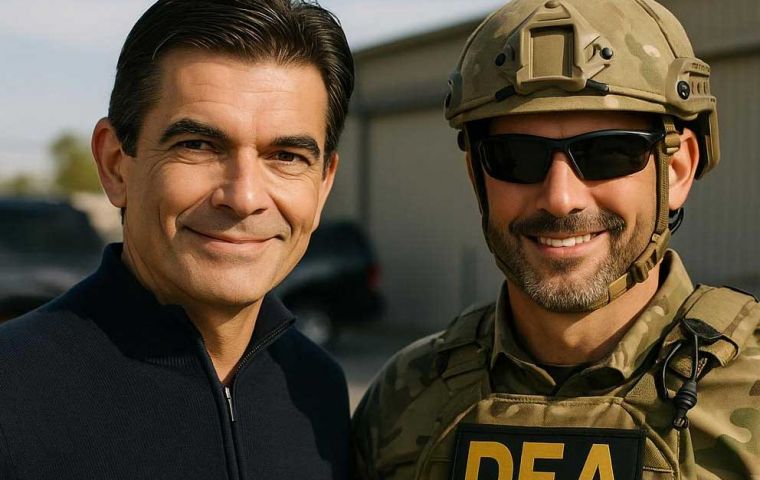MercoPress. South Atlantic News Agency
Bolivia: DEA returning after 17-year absence
 Paz's initiative faces a constitutional hurdle banning foreign forces from the country
Paz's initiative faces a constitutional hurdle banning foreign forces from the country The Bolivian government confirmed this week that the US Drug Enforcement Administration (DEA) will return to the country “very soon,” marking a significant change in the country's anti-drug policy since the agency was expelled in 2008 by former President Evo Morales.
Presidential spokesperson Carla Faval announced that President Rodrigo Paz Pereira, who took office on November 8, would detail the timeline and specifics of the DEA's return in the coming days. The move is part of the new administration's plan to rebuild Bolivia's bilateral relationship with the United States and seek international cooperation on security and energy.
The recovery of relations with Washington began during the presidential campaign and deepened with the attendance of US Deputy Secretary of State Christopher Landau at Paz's inauguration. Both nations have also announced plans to restore ambassadors.
President Paz is scheduled to travel to the United States next week to seek technical security assistance and advance agreements regarding hydrocarbon supplies.
The President underscored Bolivia's need to “open itself to the world” and embrace cooperation on security, energy, and the fight against transnational crime, stating that the country should not fear international institutions.
“Anyone who wants to oppose that effort will have to consider their situation in Bolivia. Justice and transparency must be applied here,” Paz said at a news conference.
The DEA departed Bolivia 17 years ago after then-President Evo Morales severed diplomatic relations, accusing the US ambassador of supporting opposition groups. Since then, Bolivia has operated its own model for coca-leaf control. The country remains the world's third-largest producer of coca and cocaine, according to the UN.
Despite the new government's initiative, the DEA's return faces a hurdle: Bolivia's Constitution prohibits the presence of foreign armed forces on national soil. The country's Foreign Ministry is currently reviewing the legal framework for the proposed cooperation, it was explained.
Upon learning about these endeavors, Morales underlined that the DEA cannot operate under the current constitutional restriction and called for a referendum to decide the agency's return. “The dignity and sovereignty of our peoples are not negotiable,” he wrote on X while urging Paz to clarify the terms of cooperation, particularly amid the country's ongoing fuel crisis.




Top Comments
Disclaimer & comment rulesCommenting for this story is now closed.
If you have a Facebook account, become a fan and comment on our Facebook Page!